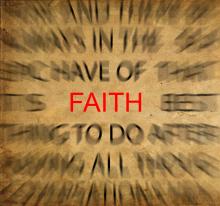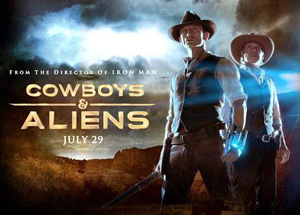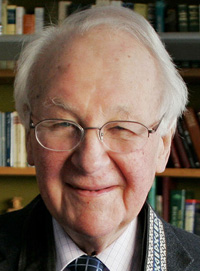status quo
What a relief it would be to dwell in [faith] communities where we acknowledge our shadows in a healthy acceptance of ourselves as containers of all the opposites! It may prove beneficial to be forced to face, daily, the humiliating fact that some of us are no less violent than those whose policies we oppose.
—Walter Wink, Engaging the Powers
I AM A conscientious objector, and I am drawn to violence. My attraction to violence is both innate and learned. When something frightens me, my hands clench into fists. When something angers me, I want to inflict pain upon that thing. But a person cannot inflict pain upon a thing, so I seek out those whom I deem responsible for said thing and my desire to inflict pain upon a thing morphs into a desire to do violence to another person. Since I was a child, I have fantasized about using violence to stop what I see as bad and thereby become good.
It is from this point—from these fantasies of righteous violence—that I begin this essay on my journey to principled nonviolence and conscientious objection. This is a story of change and choice, but it is not a story of transformation: I am who I have always been.
In fall 2012, I spent three weeks in Israeli military prison for refusing to enlist in the Israel Defense Forces. (Every Israeli citizen, except for the ultra-Orthodox and Palestinian citizens of Israel, must serve in the military.) My sentence was brief, but the process that brought me to the prison’s gates took almost a decade.

I got fitted for a custom-tailored suit this week.
Not because I suddenly found a pot of money. I didn’t, and I didn’t need to. The cost for this Hong Kong tailor is comparable to what I have been paying for off-the-rack suits.
My problem is middle age. My shifting body type makes off-the-rack suits too wide in the shoulders and too long. It’s proof that life keeps on changing, and that the way forward must include getting unstuck from old ideas.

WHICH SCRIPTURES WILL our biases tempt us to sidestep this month? Perhaps 2 Timothy? Not usually the favorite of radicals. Whether actually written by Paul just before his death or worked up later by followers, the letter has a certain poignancy, suggesting the waning of Christianity’s pioneer phase. The church is in for the long haul. Its faith needs to find forms that can be transmitted across generations. It needs patient leadership that will be consistent in the face of inauthentic mutations of the gospel, religious imposters, and the distraction of futile controversies—hence the emphasis on sound teaching, the internalized treasure of the creed.
Let’s honor this recognition within scripture itself that the gospel needs institutions. The church must even risk banality in some of its teaching practices. A great interpreter of the Christian mystical tradition, Friedrich von Hügel, invites us to respect the way radical teachings have to be given forms that can be handled by regular folks, not geniuses. “Is there not a pathetic instruction in watching the insertion of the copper alloy into the pure gold ... that is, a metal sufficiently resistant to the clumsy handling of the multitude to be able to persist in the transmission of a value, and indeed a precise value, even though it be not the highest. There is surely a pathos here most thoroughly characteristic of the abiding limitations and homely needs of our poor humanity.”
POPE FRANCIS HAS created a new environment in the church. Beginning with asking all the people in St. Peter’s Square to bless him, living in a humble apartment and not the papal palace, placing his own phone calls, paying his own bills, giving simple daily homilies, having conversations with many people, and joyfully mingling with people: These all characterize an incredibly different pope. What has been even more attractive about Pope Francis than his style has been what he has said.
Pope Francis is clearly not on a mission to preserve the status quo. He’s been outspoken about the need for change in the world and in the church. In this he has not been a “professional denouncer.” Rather, he always contrasts what needs to change with the opportunity to be so much more than we are now. Whether it is oppressive global economic policy or clerical ambition, Pope Francis points out that we are called to something more noble and satisfying. The call of Christ is to be our best self. Francis reminds us, “God always forgives. Don’t forget this. God always forgives.”
Another striking aspect of Pope Francis is his constant and passionate concern for people who are poor and vulnerable and his reminder of our responsibilities to them. Whether he is talking to world leaders, bishops, or general audiences, his love of poor people and his firsthand knowledge of their challenges and how we should respond is profound.
INTRIGUING AND believable characters are part of what makes Janna McMahan’s new novel Anonymitya memorable read. Through the story, which is set in Austin, Texas, the author provides a well-constructed and evenly paced plot that brings to light critical themes around home and homelessness.
Early in the story we discover classic contrasts between the two protagonists. Lorelei is a young, homeless runaway whose daily grind revolves around finding food and a warm, safe place to sleep, while Emily’s major mission centers on branching out from her bartending job to take up a more artistic endeavor as a photographer. One buys organic greens from the high-end Whole Foods Market, while the other seeks sustenance in restaurant dumpsters.
This interesting juxtaposition of characters reels us in. But as we swim through the thickening plot, we discover the startling similarities between the two: Lorelei’s rebelliousness and grit compared to Emily’s disdain for the superficial lifestyle of big-box shopping and Corpus Christi vacations; Lorelei’s refusal to seek help and get off the streets weighed against Emily’s desire to break from the overindulgence she grew up around. As Emily’s mother, Barbara, observes, “Emily liked the frayed edges of life, a little dirt in the cracks.” It should come as no surprise that Emily takes an interest in Lorelei’s hardscrabble existence.
So much about Lorelei remains a mystery, which serves to add tension and compel the reader forward. We sense she is searching for something, and there’s no way to prepare for the powerful punch McMahan delivers when we discover what Lorelei’s quest is about.
IT'S BEEN SAID that one of the most radical things Jesus did was to eat with the wrong crowd. Undoubtedly, folks on the Left were frustrated with Jesus for making friends with Roman tax collectors. And folks on the Right were surely ticked at him for hanging out with Zealots. Dinner must have been awkward with both of them at the table; after all, Zealots killed tax collectors for fun on weekends.
But Jesus was a subversive friend, a scandalous bridge-builder, a holy trespasser. Just as we are known by the company we keep, so was Christ—accused of being a "glutton and a drunkard, a friend of tax collectors and sinners" (Luke 7:34). He was put on trial for being a rabble-rouser and a traitor. He got in trouble with the religious elite for crossing the line, overstepping purity laws and cultural norms, and disrupting the status quo. His love had no bounds and his friendships defied categories. He insisted on calling his followers friends: "I no longer call you servants, because a servant does not know his master's business. Instead, I have called you friends" (John 15:15).
Jesus made friends—with folks who adored him and folks who hated him. He sat with the woman at the well, washed the feet of his disciples, wept at the death of his buddy Lazarus, and loved his mom and dad. But his love went beyond borders. He redefined family, inviting his followers to be "born again" and discover an identity that runs deeper than biology. He challenged the chosen and included the excluded—in the family of God.
I wonder who Jesus would be hanging out with if he were around today?
DANIEL BELL'SThe Economy of Desire juxtaposes Christianity and capitalism, situating both in the context of postmodernity. The main argument of the book is that performing works of mercy—both corporal and spiritual—constitutes an alternative economy that can resist capitalism. Capitalism, in Bell's construal, is an economic system founded on voluntary contracts, private property, and an ideological regime where the rule of the market transcends the rule of law and disregards the reign of God in Christ.
The author draws on the work of philosophers Michel Foucault and Gilles Deleuze to set up a philosophical framework for talking about power and desire. His treatment of Foucaultian insights on the ubiquity of power is meant to decenter the state as the primary engine of social change. Deleuze's work builds on Foucault's argument by conceptualizing people—and society at large—as flows of desire. Taken together, the claim is potentially but not necessarily democratic: Social structures organize desire in particular ways and are malleable due to the fact that power resides not only in the state or market but in the relational networks of everyday people. Under this account, for instance, the typical presidential election is not simply about securing votes, but about directing the aspirations and actions of the electorate toward a collective passion for growing the economy, expanding the middle class, and so on. Capitalism, for Bell, secures our loyalty because it shapes what we do as well as what we desire.
A few strengths of the book stand out. It contains a lucid discussion of the difference between commutative (fair contracts) and distributive (fair proportion of wealth, power, and other goods) justice within society. The scope of the author's analysis is also impressive. Bell substantively engages the arguments of diverse figures from Adam Smith, Milton Friedman, and Friedrich von Hayek to Augustine, Thomas Aquinas, and Martin Luther. Moreover, Bell's contention that proponents of capitalism effectively deny the possibility of social holiness is worth the price of the book.

In January 2011, members of Christian Churches Together in the U.S.A. met in Birmingham, Ala., to examine issues of domestic poverty and racism through the lens of the civil rights movement and by reading together Martin Luther King Jr.'s "Letter from Birmingham Jail." As they gathered in the 16th Street Baptist Church under the beautiful Wales Window portraying the black Christ, which replaced the window blown out when the church was bombed in 1963, these contemporary church leaders, representing the broadest Christian fellowship in the country—36 national communions and seven national organizations, including Sojourners—realized that apparently no clergy had ever issued a response to King's famous letter, even though it was specifically addressed to "fellow clergymen [sic]." In 2013, to mark the 50th anniversary of King's letter, Christian Churches Together released its thoughtful response, which we excerpt below. —The Editors
WE CONFESS. As leaders of churches claimed by more than 100 million Americans; as Catholics, evangelicals, Pentecostals, Orthodox, Historic Protestants, and members of Historic Black denominations; as people of many races and cultures: We call ourselves, our institutions, and our members to repentance. We make this confession before God and offer it to all who have endured racism and injustice both within the church and in society.
As church leaders, we confess we have tended to emphasize our responsibility to obey the law while neglecting our equal moral obligation to change laws that are unjust in their substance or application. All too often, the political involvement of Christians has been guided by the pursuit of personal or group advantage rather than a biblically grounded moral compass. We confess it is too easy for those of us who are privileged to counsel others simply to "wait"—or to pass judgment that they deserve no better than what they already have.
We confess that we are slow to listen and give legitimacy to those whose experience of race relations and social privilege in America is different than our own. We keep the "other" at arm's length to avoid hearing the call to sacrifice on their behalf. Our reluctance to embrace our "inescapable network of mutuality" underscores Dr. King's observation that privileged groups seldom give up their advantages voluntarily. For example, it is difficult to persuade most suburban Christians to demand that they strive for the same quality of education in our cities that they take for granted in their own schools. To the extent that we do not listen in love, our influence in society is limited to "a weak, ineffectual voice with an uncertain sound."
Occupy Wall Sreet, false idols and a moral economy. Breaking the cycle of poverty. Poorest poor in U.S. hits a new record: 1 in 15 people. As poverty deepens, giving to the poor declines. Arianna Huffington: Shakespeare, the Bible and America's shift into a punitive society. Peaceful Occupy Oakland march followed by late-night clashes.
So NPR just released the results of their survey for the "Top 100 Science-fiction and Fantasy Books." It's a great list with some of my all-time favorite books on it (although I disagree with their decision not to include young adult books on the list, but that's just me). Some 5,000 books were nominated for the list, but the ones that made the top 100 were mostly ones that were more than just entertaining stories; they are the stories that mean something. Stories that through their imaginings of alternative worlds tap into the power of the prophetic to deliver the message that our world too is not absolute, but imagined and therefore capable of change.
Now, while I have complained in the past about why imaginative challenges to oppressive orders in our world only seem to happen in speculative fictions, the genre still remains my favorite -- often for that very reason. As this recent comparison of women of sci-fi vs. women of prime time shows, there are just so many more substantial ways of being in the world than the status quo generally allows for. Speculative fictions not only present the possibility that the dreams we struggle for now could someday actually be realities, they are also the prophetic voice calling us into that world.
 Americans have a hard time knowing how to respond to the sins of our colonial past. Except for a few extremists, most people know on a gut level that the extermination of the Native Americans was a bad thing. Not that most would ever verbalize it, or offer reparations, or ask for forgiveness, or admit to current neocolonial actions, or give up stereotyped assumptions -- they just know it was wrong and don't know how to respond. The Western American way doesn't allow the past to be mourned or apologies to be made. Instead we make alien invasion movies.
Americans have a hard time knowing how to respond to the sins of our colonial past. Except for a few extremists, most people know on a gut level that the extermination of the Native Americans was a bad thing. Not that most would ever verbalize it, or offer reparations, or ask for forgiveness, or admit to current neocolonial actions, or give up stereotyped assumptions -- they just know it was wrong and don't know how to respond. The Western American way doesn't allow the past to be mourned or apologies to be made. Instead we make alien invasion movies.
 [Editors' note: Rev. John Stott, one of the world's most influential evangelical figures over the past half-century, died this Wednesday at age 90. Rev. Stott served as a contributing editor for Sojourners magazine, when we were known as The Post American, and wrote this article for the November/December, 1973 issue of the magazine. We will always remember Rev. Stott for his profound contributions to our community and the Church.]
[Editors' note: Rev. John Stott, one of the world's most influential evangelical figures over the past half-century, died this Wednesday at age 90. Rev. Stott served as a contributing editor for Sojourners magazine, when we were known as The Post American, and wrote this article for the November/December, 1973 issue of the magazine. We will always remember Rev. Stott for his profound contributions to our community and the Church.]
It seems to be a characteristic of the Anglo-Saxon mind to enjoy inhabiting the "polar regions" of truth. If we could straddle both poles simultaneously, we would exhibit a healthy balance. Instead, we tend to "polarize". We push some of our brothers to one pole, while keeping the other as our own preserve.
What I am thinking of now is not so much questions of theology as questions of temperament, and in particular the tension between the "conservative" and the "radical."
After months of good-faith reforms and patience, the drama is back in Egypt's Tahrir Square as protesters are preparing for a potential showdown with the state's military rule. The movement, among other things, is demanding an end to military rule -- a more radical call that reflects both the frustration with the status quo and the hope for a better way.
Two weeks ago, at the "Day of Persistence," Egypt saw its largest resurgence of public protest since former President Hosni Mubarak was ousted in February. The nation-wide protests show Egyptians camping out in Cairo's Tahrir Square, staging sit-ins and blocking traffic in Alexandria, and threatening to shut down Suez's tunnel access to Sinai. So why are the people confronting -- albeit nonviolently -- an interim government that has promised elections and a new constitution? A glance at the collective demands drafted in Tahrir Square make clear that the movement's demands -- both political and economic -- have not progressed much under the military rule of the Supreme Council of the Armed Forces.
 Seeking justice for the oppressed. Working to end the connection of child slavery to chocolate. Helping heal a devastated Haiti. Mobilizing young people to respond to a story of redemption by imaginatively working to build a better world. I think many of us Christians would hope that those words were describing the work of the body of Christ, intent on following the path of Jesus Christ in this world. In this case, they are actually descriptions of the Harry Potter Alliance. That's right -- the Harry Potter Alliance.
Seeking justice for the oppressed. Working to end the connection of child slavery to chocolate. Helping heal a devastated Haiti. Mobilizing young people to respond to a story of redemption by imaginatively working to build a better world. I think many of us Christians would hope that those words were describing the work of the body of Christ, intent on following the path of Jesus Christ in this world. In this case, they are actually descriptions of the Harry Potter Alliance. That's right -- the Harry Potter Alliance.
If migration policy was "freed" or emancipated, people could respond to real work opportunities, economies would be able to grow globally, the federal and state focus could be put on fighting crime and http://www.latina.com/lifestyle/news-politics/immigration-